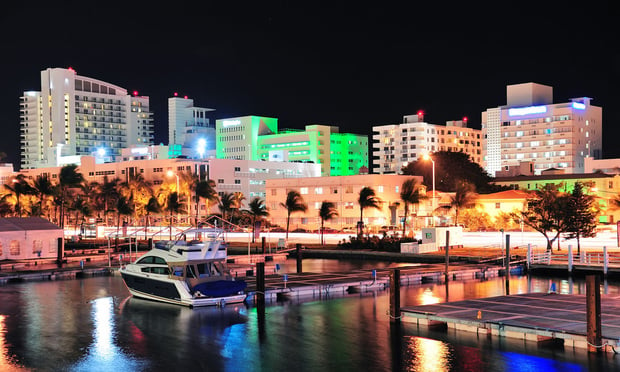The uncertainty about Tropicana's intentions comes from its successful alteration of the sale agreement allowing it to opt out of selling to anyone, and without penalty. The original agreement allowed for Tropicana to seek a higher and better offer during an interim period but did not allow it not to sell, and El Dorado had the right to the aforementioned break-up fee if Tropicana chose another, higher offer.
"This sale is not a sale," El Dorado proclaimed in its unsuccessful objection to Tropicana's revised terms, according to court documents reviewed by GlobeSt.com. "Tropicana asserts that its 'proposed procedures will increase the likelihood that Debtors will receive the greatest possible consideration for the Evansville Assets in a sale in the immediate future because they will ensure a competitive and fair bidding process.' Eldorado believes that the opposite is true. That it may not sell--is likely to deter bidding because prospective bidders are unlikely to be willing to expend the monies necessary to do due diligence, arrange financing and obtain regulatory approval in the absence of an actual intent to sell."
El Dorado Resorts put $10 million in escrow in March, having agreed to buy Casino Aztar for approximately $228 million and as much as $245 million, depending on the property's performance during the first year under the new ownership. Tropicana declared bankruptcy about two months later, technically allowing the company to get out of the agreement, which it has done.
Tropicana filed its motion to re-initiate the sale process on Aug. 21 but retained the right to withdraw the motion. El Dorado filed a motion to compel Tropicana to decide whether to move forward with the original agreement before the existing Sept. 28 deadline. The Committee of Senior Secured Lenders created by the bankruptcy court supported the sale but wanted to see if Tropicana would move forward on its own before supporting a motion to compel. El Dorado's motion was denied concurrent with the judge's approval of the new sales terms.
El Dorado wants the sale to go through in part because it has already paid hundreds of thousands of dollars to maintain the financing commitment it has in place to close on the acquisition. In its motion, El Dorado stated the sale was tentatively agreed to in the first place "to avoid adverse action by the Indiana Gaming Commission" and that the deal with the gaming commission required a third party to oversee operation of the casino, which in theory could choose to sell the asset if the sale is not consummated by Sept. 28.
El Dorado says it has expended $850,000 already to maintain its acquisition financing commitment, which expires Dec. 28, and expects to expend an additional $1 million before the deal is decided one way or the other. It is currently paying $196,000 per month to maintain the financing. After Sept. 30 that cost will increase to $244,000 per month, the company said. "The debtors are not harmed by deciding now whether to proceed with the purchase agreement whereas continued delay imposes a significant monetary cost on [El Dorado]," the company stated in its unsuccessful motion to compel the sale on the original terms.
The secured lenders want the asset sold because they believe it would maximize sales proceeds in support of Tropicana's ultimate reorganization. "The debtors have a financed commitment from El Dorado for the Evansville casino that was negotiated in a better market, without the overhang of these pending Chapter 11 cases," stated the steering committee. "If the debtors permit the 'bird in the hand' to escape and then debtors subsequently decide [or are compelled to] sell Aztar Indiana, there are no assurances that the debtors would be able to find another bidder willing to pay as much as El Dorado or that any bidder would be able to find financing, in this difficult business climate for the gaming industry."
Tropicana Entertainment LLC and its affiliates own 11 properties, nine of which are covered by the bankruptcy filing. One of the properties not included is the Atlantic City Tropicana, which the company lost control of as a result of the licensing issue, dealing a critical blow to its cash flow and causing it to default on debt obligations, which in turn caused it to seek protection from creditors under US bankruptcy laws. For more background, click here.
Want to continue reading?
Become a Free ALM Digital Reader.
Once you are an ALM Digital Member, you’ll receive:
- Breaking commercial real estate news and analysis, on-site and via our newsletters and custom alerts
- Educational webcasts, white papers, and ebooks from industry thought leaders
- Critical coverage of the property casualty insurance and financial advisory markets on our other ALM sites, PropertyCasualty360 and ThinkAdvisor
Already have an account? Sign In Now
*May exclude premium content© 2024 ALM Global, LLC, All Rights Reserved. Request academic re-use from www.copyright.com. All other uses, submit a request to [email protected]. For more information visit Asset & Logo Licensing.








